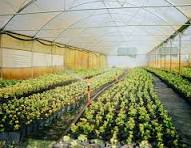10Cric, Matchexch9: Aquaponics offers a sustainable and resource-efficient method for growing plants and raising fish concurrently in a symbiotic environment. This integrated system fosters a closed-loop cycle where the waste produced by the fish becomes a valuable nutrient source for the plants, leading to higher crop yields and healthier fish in a controlled ecosystem. By combining aquaculture and hydroponics, aquaponics minimizes water usage and eliminates the need for synthetic fertilizers, making it an environmentally friendly and cost-effective agricultural practice.
Moreover, aquaponics promotes diversity in food production by allowing for the cultivation of a wide range of crops alongside fish species. This versatility opens up opportunities for farmers to grow various vegetables, herbs, and fruits, while also rearing different types of fish in the same system. The balanced coexistence of plant and aquatic life in aquaponics systems creates an ideal environment for biological interactions that enhance overall productivity and create a harmonious agricultural ecosystem.
Comparison between Aquaponics and Traditional Farming
Aquaponics and traditional farming are two distinct methods of cultivating crops. Aquaponics combines aquaculture and hydroponics in a symbiotic system where fish waste provides nutrients for plants, creating a closed-loop ecosystem. In contrast, traditional farming involves the use of soil as the primary medium for plant growth, requiring regular irrigation and fertilization to support crop development.
One key difference between aquaponics and traditional farming is the efficiency of resource utilization. Aquaponics uses up to 90% less water compared to traditional farming methods due to the recirculating nature of the system. Additionally, aquaponics eliminates the need for synthetic fertilizers, as the fish waste serves as a natural nutrient source for the plants. This sustainable approach not only conserves water but also minimizes the environmental impact typically associated with traditional farming practices.
Challenges Faced in Implementing Sustainable Agriculture Techniques
One of the primary challenges in implementing sustainable agriculture techniques is the initial capital investment required. Transitioning to sustainable farming practices often involves investments in new technology, equipment, and infrastructure that can be expensive upfront. This financial barrier can be daunting for many farmers, especially those who may already be operating on tight budgets.
Another challenge faced in adopting sustainable agriculture techniques is the resistance to change within the farming community. Many farmers are rooted in traditional methods that have been passed down through generations, making it difficult for them to embrace new approaches. Overcoming this resistance requires education, outreach, and support to help farmers understand the benefits of sustainable practices and the positive impact they can have on the environment and long-term viability of their farms.
• Initial capital investment required
• Transitioning to sustainable farming practices involves investments in new technology, equipment, and infrastructure
• Expenses can be daunting for farmers operating on tight budgets
• Resistance to change within the farming community
• Farmers are rooted in traditional methods passed down through generations
• Education, outreach, and support needed to help farmers understand benefits of sustainable practices
What are some benefits of using aquaponics in sustainable agriculture?
Some benefits of using aquaponics include increased efficiency in water usage, reduced need for chemical fertilizers, and the ability to produce both crops and fish in a single system.
How does aquaponics compare to traditional farming methods?
Aquaponics uses less water and land than traditional farming, produces higher yields in a smaller space, and eliminates the need for chemical fertilizers.
What are some of the challenges faced in implementing sustainable agriculture techniques?
Some challenges include the initial cost of implementing sustainable agriculture practices, the need for education and training for farmers, and potential resistance from traditional farming methods.
How can farmers overcome the challenges of implementing sustainable agriculture techniques?
Farmers can overcome these challenges by seeking out resources and support from sustainable agriculture organizations, investing in training and education programs, and gradually transitioning to sustainable practices to minimize risks.
Read More: Click

